Williamson County's 'law and order' reputation has led to years of corruption allegations
Williamson County has long prided itself on being tough on crime. But some feel that reputation has led to some of the controversies the county has faced.
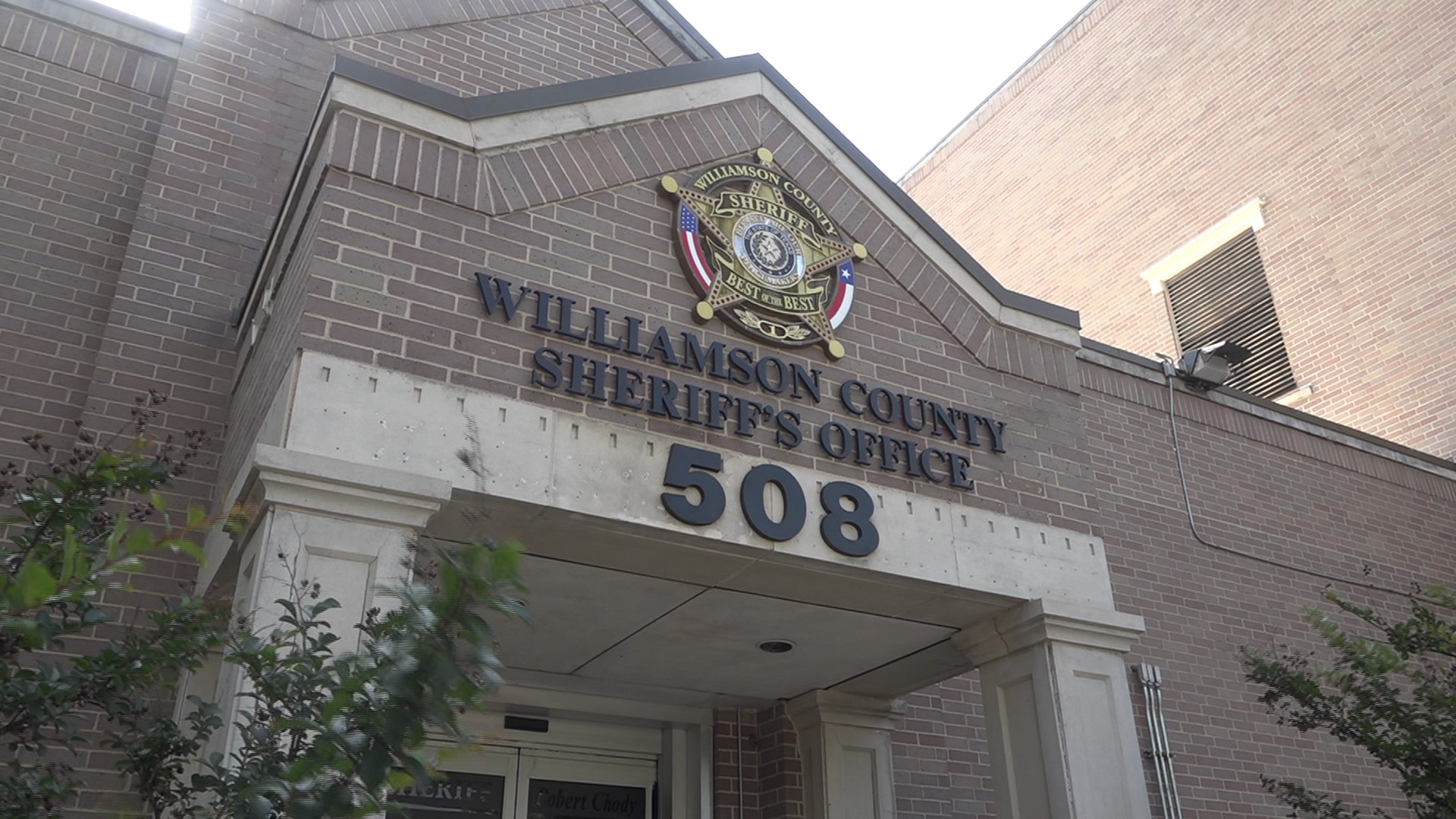
"Williamson County is tough on crime" is something many Central Texans have heard for decades. The county has long been known as a place with a strict criminal justice system.
That reputation has led a lot of people to move to the county, excited to hear it's a safe place to raise a family. But some believe it has also led to the numerous controversies the county has faced in recent history.
In the past few years, Williamson County has been in the news for incidents involving use of force by law enforcement, questionable practices within the sheriff's department and a wrongful conviction that made national headlines.
For this KVUE Defenders report, Senior Reporter Tony Plohetski spoke to a long-time Williamson County resident about the racial tensions she's felt throughout her life. He asked two lawyers, one a former state representative, about the history of the "tough on crime" narrative affecting prosecutors and court proceedings. And he spoke to District Attorney Shawn Dick and newly-elected Sheriff Mike Gleason about what they're doing to better Williamson County moving forward.
Watch the full report below:
A lifetime of racism Long-time WilCo resident reflects
Audrey Amos McGehee said she was determined that her kids would not grow up in Williamson County. But they did.
McGehee has two biological sons who are Black and two stepsons who are White. Two of her sons still live in Williamson County, one in Hutto and one in Round Rock.
McGehee said throughout her sons’ lives, she taught them what to do if they are confronted by a member of law enforcement.
“You know, I was not aware, I guess, until maybe the last five or 10 years that other Black parents were having the same talk that I was having with my sons, from little boys up into teenagers up into grown men,” she said. “'If the police stop you, you say, "Yes, sir. No, sir." You keep your hands visible at all times. OK?' I said [to my sons], 'Because if you, whether they're right or wrong, if you can live – if you're in the right and they're in the wrong – if you can live to make it home, we can deal with it later.' And it is just an absolute total fear.”

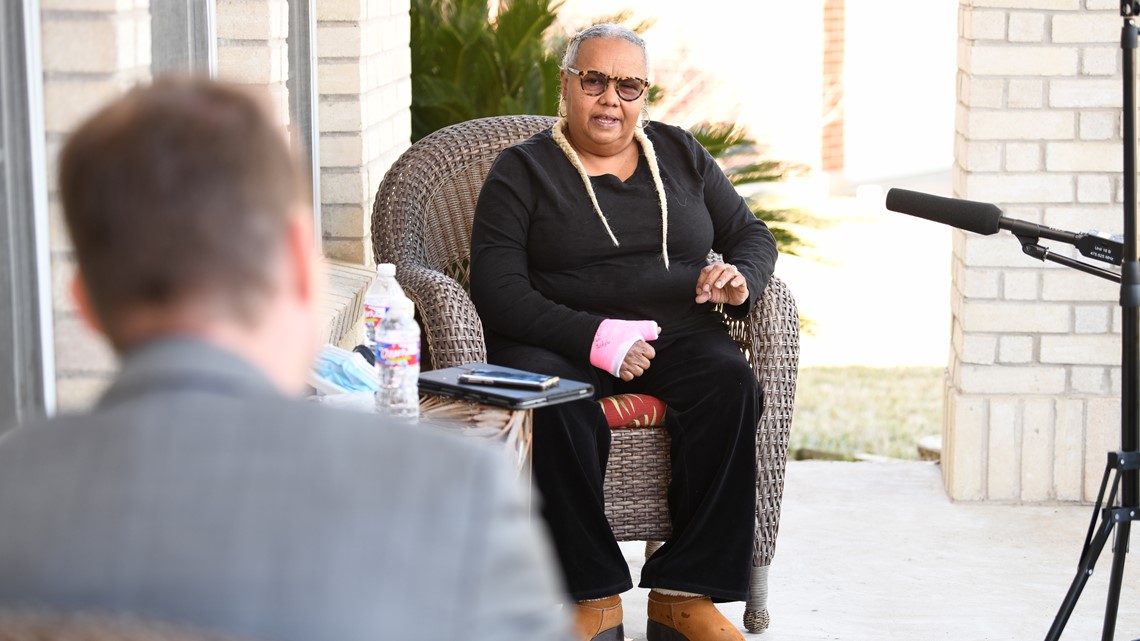
McGehee said she has experienced racial tensions in Williamson County throughout her life. In the late 1960s, she moved to Denver and said she experienced an awakening “to the rights that, constitutionally, I was supposed to have.” When she moved back to Texas in 1970, her sophomore year of high school, her views were met with resistance from her family.
“The first thing [my grandparents] said to me was, 'Do not go to that school talking that Black power clap. OK?' And so, at first, you know, I thought 'Aw, they’re old' or whatever, but once you get older, you realize they're concerned about your safety,” McGehee said.
As for whether she believes racism is still a problem in Williamson County, McGehee said she does.
“Williamson County is racist. It is still very racist. When you have people in power that say racism does not exist in Williamson County, they're just flapping their lips,” she said. “It is awake and live in Williamson County.”
McGehee told KVUE she thinks the former presence of the TV show “Live PD” in the county contributed to an overall worsened reputation.
“I mean, any place you go, they say – they know what county you live in – 'Oh, you live in Williamson County?' And here's what's, what's even added on to that now: 'Oh, are we going to see you on "Live PD?"' And it's like, that's not funny. But now Williamson County also had that reputation of, you know, you're being shown on 'Live PD,'” McGehee said.
She believes having the show film in the county was a mistake that dictated how sheriff’s deputies responded to crime.
“The fact that, one, they would limit emergency calls to, you know, say, no, you know, [they've] got this 'Live PD' being filmed and they're not going to send these police officers that are in that sector because, you know, they're waiting to wait 'til they got something they can hype up for 'Live PD.' I think 'Live PD' was a mistake on many levels,” McGehee said. “I think that [former Sheriff Robert] Chody … that he felt untouchable.”
However, McGehee does have tentative hopes for the department and county under new Sheriff Mike Gleason.
“The new sheriff, Mike Gleason, I do consider an ally. That does not mean we agree on everything because we don't because, you know, I love him to death, but the bottom line is he is a police officer and he's going to think like a law enforcement officer,” she said.
McGehee said her plea to Gleason is that he set up a committee of people within the community to try to come up with a plan or some procedures so that their voices are heard and “we can work within the system to try to make things better.” McGehee said Gleason has agreed to create the committee, but it won’t happen in the first few months of the year.
Witnessing prosecution Lawyer discusses history of injustice
Keith Hampton has been a lawyer for more than 30 years. He said he’s seen a lot of change over the decades in terms of the way prosecutions work in Williamson County and beyond.
Back in the late 1980s and early 1990s, Hampton said there was often animosity between prosecutors and defense lawyers.
“[Prosecutors] had all the power, they had all the information and they were hostile to defense lawyers,” Hampton said, adding, “[The ideology was] that we're basically criminals, we represent criminal interests and we're to be considered second class. It was awful.”
Hampton said that ideology doesn’t exist in Williamson County today, but the county does have a complicated past when it comes to criminal justice. He said for a long time, due in part to its proximity to Austin, Williamson County fostered a reputation as a place of strict law and order – no matter what.
“[One reason is] Williamson County being in close proximity with what Texas conservatives regard as the 'People's Republic of Austin.' And so, anything that happened in Austin was mocked, derided and contrasted with their perfect system, their gleaming system of justice. And so, that helped feed an ideology of superiority,” Hampton said, adding, “The philosophy is, ‘We're the toughest on crime and no one will stand in our way from punishing it.’”

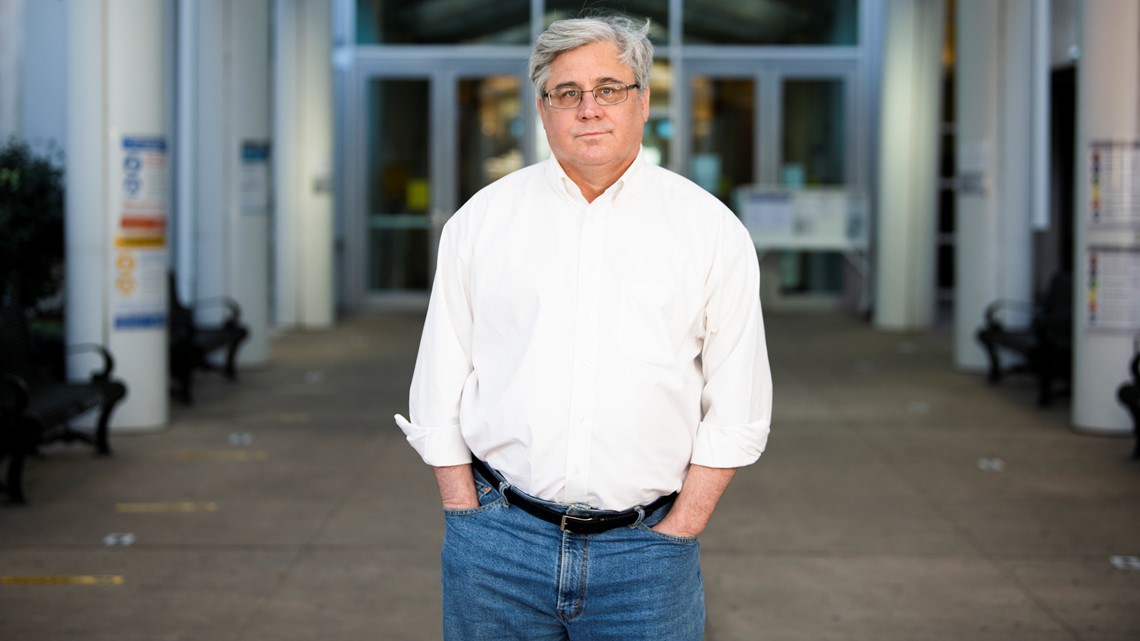
Hampton said that attitude – and the practices and policies it produced throughout the years – was reflected in the Michael Morton case. Morton was convicted of his wife's murder in 1986 and spent 25 years in prison before he was exonerated by DNA evidence that supported his claim of innocence.
Hampton said he wasn’t surprised that something like that happened in Williamson County.
“These are the consequences of this, of this whole philosophy that you've built because power corrupts. And they were corrupted, they could get convictions when they wanted to,” Hampton said.
“I'm not even sure if [the exoneration] would have happened if it hadn't been a DNA case. There's no way to get around that. Well, DNA that excludes him and matches a serial killer, doesn't get any better than that. So, it took that to just break the facade of what was, in my view, a very corrupt office [that of former District Judge Ken Anderson]," Hampton said.
More than 30 years later, Williamson County made headlines again for a similar reason: the case of Greg Kelley, a high school football star wrongfully convicted of aggravated sexual assault of a child. Hampton – who served as Kelley’s defense attorney during his appeal – said the case was a demonstration of the “vestiges of the old corrupt system.”
“You know, the Ken Anderson, John Bradley days were dark days. This is day and night ... Nevertheless, you still – we still have a ways to go. And Greg Kelley did represent that because the prosecutors did have that self-image of 'they’re crime fighters.' And once you put on those blinders and your aim is to get a conviction instead of seeking the truth, it's going to wind up, you're going to find more Greg Kelleys,” Hampton said.
Hampton said he believes Williamson County District Attorney Shawn Dick – who he met through the Kelley case – is in a position to lead Williamson County to a better reputation with criminal justice. He said Dick has a monumental amount of work to do and is likely meeting unfathomable amounts of resistance, but Hampton believes Dick is up to the challenge.
“There are places in the state that are truly, you know, awakened to the root. There are places in the state where DAs have awakened to their primary mission to see that justice is done and to reevaluate what it means to seek justice. And Shawn Dick is right there at the fulcrum,” Hampton said.
Hampton also believes the changing demographics in Williamson County are leading to a more diverse pool of jurors that are more “open to finding someone not guilty if the state didn’t prove its case.”
“The jurors in those days, Ken Anderson, John Bradley, could depend upon very prosecution-oriented jurors. They didn't, they didn't really have much of an uphill battle. They got up and said, ‘This guy is guilty’ and that jury is pretty much there. So, that's not true today,” Hampton said. “The demographic change has made things much more fair because now, now it's not a given for either side. It's truly advisory.”
Overall, Hampton thinks the county is moving in the right direction.
"I tell lawyers this that are like, you know, 'Oh, man, what a shame, man, you got to – you’ve got a case in Williamson County.' And I have to tell them 'You're, you're behind,'" he said. "Williamson County's actually a really nice place to practice."
A new Williamson County Former state representative discusses ‘tough on crime’ reputation
Dan Gattis has a long history with Williamson County. The former prosecutor’s family goes way back there, and he served as a state representative for the area for four terms, or eight years, starting in 2003.
In an interview with KVUE, Gattis spoke about Williamson County’s long-standing reputation of being “tough on crime” and how that may have affected prosecutors serving in the county.
Gattis said he believes the county got that reputation “because some people have crafted that reputation because it’s been to their benefit.” He also thinks the narrative sprung up in part because of Williamson County’s proximity to Austin and Travis County.
“I don't believe that Williamson County is necessarily any tougher on crime than any other what I would consider, you know, a suburban or a rural county in the state of Texas. The prosecutors there, I think, take their job very seriously. And, and they do a good job,” he said. “I think when you're as close to Travis County – you know, we call the blueberry in the strawberry patch, kind of a more liberal-leaning area – then the comparison is so much more readily available. And so, you look at that as being, ‘Man, look how much tougher they are than Travis County. They must be the toughest county in the state of Texas’ … Well, that's not really probably true.”

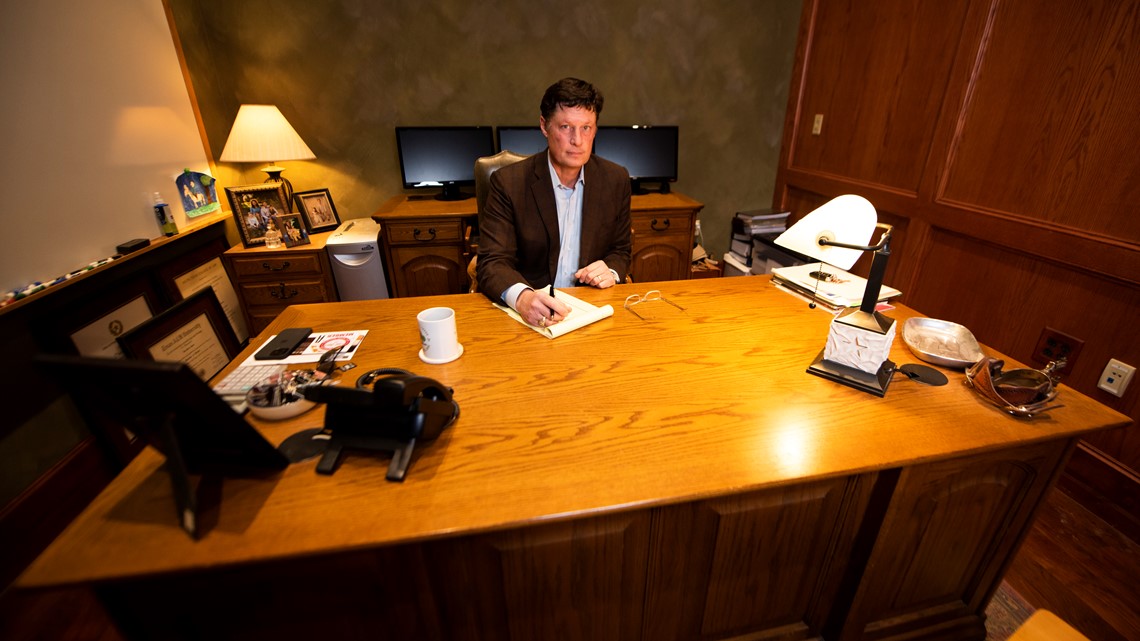
He also thinks the reputation of being tough on crime has had an effect not only on the culture of the area but on the politics.
“When you're able to have that reputation of being tough on crime, a safe community, a safe place, I think that that bodes well for somebody running for office,” Gattis said.
But he said it can also have an effect on prosecutors trying to do their jobs.
“A prosecutor takes an oath that their job is to do justice. The job is not to get a conviction on every case,” Gattis said. “But I think that's a real challenge for prosecutors because, you know, sometimes they can move up the ranks, so to speak, or run for office based upon this tough-on-crime [idea]. ‘Look at all the convictions I have.’ Because I think people look at that, you know, they, if you're running for office or you want to make an advancement, that's kind of the things they look at.”
Gattis does believe the county is moving in the right direction with the appointments of Sheriff Mike Gleason and District Attorney Shawn Dick. Gattis said in a recent conversation he had with Gleason, the sheriff told him the morale in his department is “through the roof.”
“I think because they feel like they can go do their job and not be second-guessed and questioned all – they want to be good law enforcement officers. They want to go enforce laws but do it in a responsible manner,” Gattis said.
As for the DA, Gattis has faith that Dick is in his position for the right reasons.
“Shawn and I were court partners in the DA's office back when I was the assistant DA. Shawn is thoughtful with what he, with what is the job he's been presented. He won't always get it right. I don't always agree with him. But that's OK,” Gattis said. “As long as I believe that he's being thoughtful in what he's doing and he's not doing things for political bent, but he's doing them because, as that oath that he took, he believes justice, you know, demands that.”
Gattis also believes Williamson County itself is seeing a bit of a morale boost, both through big economic opportunities and through leaning into the more positive aspect of its reputation.
“The reputation of being a safe place to raise your family … is there. I think that's why we have the tremendous growth we have. That's been Williamson County's reputation for a pretty long time. It's always been a place where people wanted to come and raise their families in and to do business,” Gattis said. “Our proximity to Austin has benefited us, you know, in many respects from that economic opportunity. But I think it's, you know, Williamson County's coming in on its own.”
A focus on integrity Williamson County’s DA on problems and solutions
Williamson County District Attorney Shawn Dick was sworn in four years ago. He said his office is focused on keeping the county safe while maintaining a sense of integrity and commitment to justice at the same time.
That hasn’t always been the county’s reputation.
Dick said the long-standing narrative of Williamson County as a “law and order county” has at times scared people into not committing crimes but also scared those who were arrested into not defending themselves.
“It allowed, you know, prosecutors and law enforcement officers to do less than our best work to secure convictions. And I think because people wanted to believe so badly in the guy with the white hat and the guy with the black hat, they just really – they rooted for the good guy. They rooted for law enforcement. And it's not to say that law enforcement isn't the good guy. You know, they still are the good guys. But it doesn't mean there aren't some, some problems here and there that need to be addressed,” Dick said.

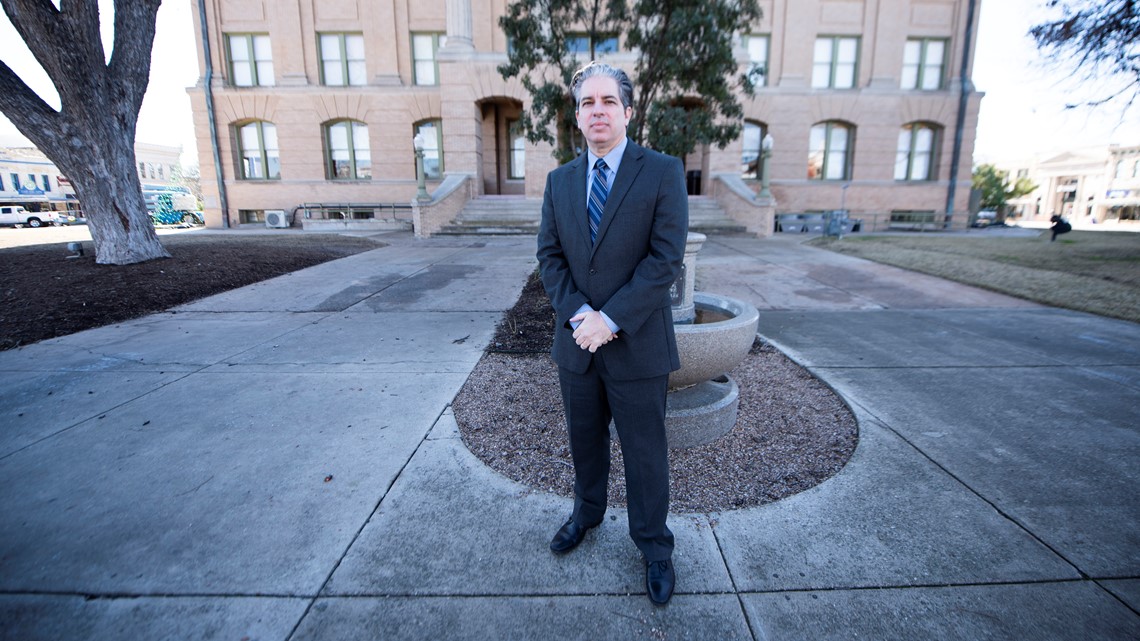
Dick said that over the years – and in particular with the presence of “Live PD” in the county – some officials lost sight of the integrity and empathy he believes is required in the jobs of prosecutor and law enforcement officer.
“The public expects you to tell the truth. The public expects you to be the good guy. The public expects you to be courteous and professional. You know, I think in watching a show like ‘Live PD’ and watching some of the rhetoric around television shows like that, I think we've lost some of the courtesy that goes along with it. We've lost some of the respect that goes along with it,” Dick said. “You know, there are so many really good officers that are very capable of controlling a situation, exercising their authority, but doing it in a courteous and professional manner.”
Dick said that some of those issues were really brought to light with the Greg Kelley case, which came across his desk very shortly after he took office. Dick said when Kelley’s appellate lawyer, Keith Hampton, asked him to take a second look at the case, Dick told him to give him a few weeks.
About a month or so later, Hampton presented Dick’s office with a proposed writ that raised serious questions about the integrity of Kelley’s conviction. Dick said it was serious enough that he felt an independent investigation was warranted, which is when the Texas Rangers were asked to begin looking into the case.
Dick said he considers himself a pretty balanced attorney, having spent about the same amount of time as a prosecutor as he did as a defense lawyer. He believes he approaches cases with a balanced view, so the Kelley case felt significant.
“To be in a position to potentially see someone that might have been wrongfully convicted and be in the position of the decision-maker as to how we move forward on it, it was definitely sobering,” Dick said. “And it was an important moment, I think, in Williamson County's history. And it's an important moment, certainly for my office and our administration in terms of how we were going to move forward on all of our convictions.”
“To hear it happened so recently again [after the Michael Morton case], I think it was just hard, you know? Hard for Williamson County residents to accept because, I mean, this is a great place to, you know, to live and it's a great place with great officials. But mistakes still get made,” Dick said.
Now Dick works to avoid similar mistakes. He said at the end of the day, he has to do what he believes is right and everything he and his staff do is “through a prism of professionalism, experience and integrity” – a sentiment he said he knows can sound trite but that he firmly believes in.
“When we put a case forward in court, we honestly believe in that case,” Dick said. “And we're doing everything we can to uncover the truth and make sure that we're holding the right people accountable for the right reasons.”
New sheriff in town Mike Gleason discusses changes
The problems Williamson County has faced didn’t start with newly-appointed Sheriff Mike Gleason’s predecessor – and they won’t be fixed overnight or by Gleason alone.
“Everybody wants to talk about the 8,000-pound elephant in the room that I inherited, you know, and, and I go, you know, 'I'm here to fix it,' but I don't have all the stories, you know, and I don't have all the facts,” Gleason told KVUE. “And that's going to be determined by a bunch of legislators and judges and, you know, and politicians and community members.”
That said, Gleason has hit the ground running to try to revamp the Williamson County Sheriff’s Office (WCSO), armed with his own experience in the department. Since he was sworn in on Jan. 1, the WCSO has seen numerous firings and resignations.
“We replaced the entire command staff and then some key civilian positions. Then a lot of positions were just reclassified to create our vision moving forward that we didn't think that we had enough resources in other departments where we could double-duty and cover that responsibility and create another division that really needed attention that we've all learned about in the last couple of years or so,” Gleason said.
Among the deputies who have resigned are Zach Camden and J.J. Johnson, the officers involved in the death of Javier Ambler, and Lorenzo Hernandez, who used force on a domestic violence victim in September 2020. Gleason said some of the people who no longer work for the department were going to be placed on administrative leave pending an investigation.
“We wanted to come in and do our own investigation because, like the rest of the civilian population, we were getting [the] one side that we were getting. You know, we had no privileged information handed to us. So, we were going to do our own investigation,” he said. “And I think the part that may have ruffled a few feathers is that we also were not shy about if we uncovered something criminal, that we would prosecute you. And I think a lot of people wanted to just move on down the road.”
Despite those who may have wanted the sheriff to move on, Gleason said overall, a fresh start has been “almost demanded” by the people of Williamson County. He said in just his first few days in office, he and his staff had people coming up to them, congratulating them on the win in the November election.
“We have been approached by numerous, numerous people in public saying, ‘Congratulations, we needed this new leadership. Thank you so much. Thank you for what you do.’ So, every reaction I've gotten has been extremely positive from the public,” he said, adding, “They showed it in the polls. They showed it at the voting booth that day that this is what they wanted.”
Gleason said the problem “comes back to the same small group,” a core group that is “the reason we’re in all these multimillion-dollar lawsuits, all these people are being terminated, the place does not run because of nepotism and the good ol’ boys system.”
Ultimately, Gleason said, the job isn’t for everyone.
“It's just not for everybody. And if you can't excel at it, you know, you need to move on down the road and find something that you excel at. Just because you have this desire to carry a gun and drive fast doesn't make it right. You know, there's still a whole other factor of this. And you have to treat people with common decency. And if you don't have the DNA to do that, you have no business in this job,” he said.
As for making sure the people that work for him are cut out for the job, Gleason said philosophy and the overall culture of the department play a role.
“You lead by example. You know, you emulate your leader. And if your leader is a buffoon, then the rest of the people are allowed to be a buffoon,” Gleason said.
But largely, Gleason believes putting together a good department is about the selection process and training people to aspire to a higher level and not be comfortable “at the bottom.”
“It's all about the selection process. It’s all about vetting young men – and not even young anymore men and women – who are mentally and physically capable of doing the job and their heart is in the right place,” Gleason said.
“We have to train faster, harder, better, because … we want to enjoy the reputation of being [where] honest, hardworking people want to come here,” he said.
PEOPLE ARE ALSO READING:


